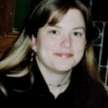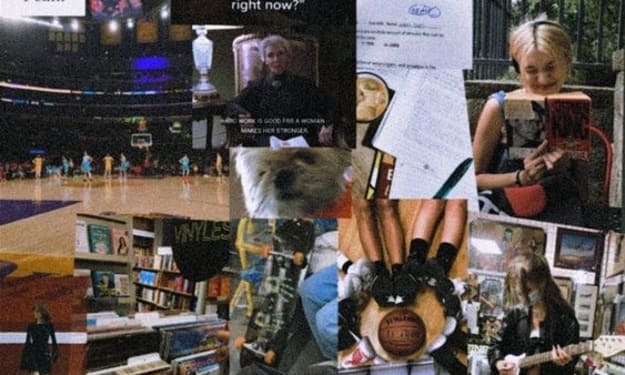Filling the Blank Page
Lessons from my 12-year-old self

I was always a writer in school, as early as the elementary grades. When we learned that we had to write an essay, my classmates would groan while I would become giddy with anticipation, sharpening my pencils and pulling out stacks of paper. On one sixth-grade assignment, I had inexplicably forgotten to write a short answer in the middle of the homework. My teacher somehow overlooked my omission and gave me a 97% on the assignment. I immediately brought the issue to her attention, and she lowered the grade but gave me credit for being honest. Instead of 77%, I ended up with 85%. When she saw my reaction, she asked me why I was still upset, and I told her because I didn’t get to write the answer.
I didn’t care about the grade. I was devastated that I had missed a chance to write.
That was the day that I knew writing would always be part of my life.
But it wasn’t until the following summer that I realized that I not only wanted to write, but I could write in a way that made adults sit up and notice (which made my 12-year-old self feel like a superhero).
That summer, I attended a two-week camp for kids who enjoyed school. Basically, it was summer school, but the classes had a more creative slant. I used a disposable camera for the photography class, learned how to project my voice in drama, and wrote a very basic game in computer coding. But what stands out strongest in my memory is the creative writing class.
Actually, it is the creative writing teacher who stands out. He was a published author of horror stories. As a pre-teen obsessed with Stephen King and Dean Koontz, I was in awe of this teacher, whose book was included on the same library shelf as King and Koontz. My awe quickly turned into terror—and not the fun kind—when I realized this teacher would be reading every word that I wrote.
Before I ever put the first words of a story on paper, I was already experiencing imposter syndrome.
His class meetings were quite formulaic, starting with three minutes of open writing, followed by the discussion of a specific writing concept and ten minutes of practicing the concept on our own. We then spent the rest of the class working individually on our final project: a short story of at least 2000 words that would be shared at parents’ day the last day of camp. I had no problem in the first half of class, but once it was time for individual work, I sat there, unable to write.
My mind was blank, a wall of grey nothingness that would not let me through. Seeing everyone else writing furiously only deepened the greyness, making it impossible for me to write a single word.
The teacher went out of his way to encourage me. He started with the “just write anything” mantra. I offered excuse after excuse. I didn’t know what to write. I didn’t know who the characters were or what the plot was. I wasn’t good at writing horror or romance or mystery or creative non-fiction. No one would want to read my stories. Thankfully, the teacher refused to give up. He tried offering me simple prompts and suggestions to kick-start the writing process. Still, I struggled.
The days were ticking by and I was getting no closer to starting the final project. Meanwhile, my peers were finishing theirs and handing them in, which only made me feel more like an imposter. Actually, a complete failure.
I had only experienced this kind of failure once before in my young life: the day my undefeated fourth-grade softball team played the final game of the season.
It was an incredible game. I played shortstop and had stopped every single ball that came my way, including catching a ball behind my back. The other team’s coach had instructed their team to hit anywhere but near me. I felt like a softball goddess.
By the final inning, we were behind by one run, but we had a runner on third and another on first. Overtime was a few feet away, and winning was in reach. We already had two outs when I was up to bat. My teammates were jumping with excitement as I walked to the plate. I was a power hitter.
A minute later, I was fighting to hold back tears. I had struck out for the first time in my life. Our team still had an amazing season and went on to win the league championship, but what I remember most is walking back to the car after I struck out. My mom was reminding me what a great game we’d played. My father made one comment: “You shouldn’t have swung on that last pitch. That lost the game.”
Now, sitting in the camp classroom, staring at a blank piece of paper, the greyness in my mind was pierced by a single phrase: You shouldn’t have swung. I was convincing myself that I couldn’t fail at writing if I never even tried to write.
Ah, the logic of a twelve-year-old.
The night before the story was due, I sat in the room I shared with another camper, still staring at the blank page. I knew I had to turn something in. Anything. But the longer I sat there, the angrier I became.
I was angry that I couldn’t write.
I was angry that I was failing a class.
I was angry that I was going to lose this opportunity to work with a real published author.
I was angry that my father’s voice wouldn’t stop echoing in the back of my mind.
And I was angry that I was still devasted by my failure to hit the ball in that game two years earlier.
The brain is an extraordinary organ. It can convince us that we are infallible; in the same breath, it can convince us that we are failures. And in this situation, it convinced me to put all my anger and frustration on paper.
Suddenly, I was writing. I would love to say that the words were flowing in an effortless river of storytelling, but in reality there was a lot of starting and stopping. I didn’t care. I was writing.
The next day, I handed in a story about a young girl who is visited by a ghost, but when she tries to tell her father, he dismisses her. The ghost is trying to warn the young girl of an impending disaster, but the girl doesn’t know what to do. No one believes her. In fact, they claim she is just seeking attention. In the end, the girl chooses to believe the ghost and survives the disaster while others do not, including the father.
Needless to say, writing the story was a particularly cathartic process for me, but I didn’t think it was a good story. I felt better after the process, but I had “insider knowledge” about the characters and why I had really written this story. For others, it was a completed assignment. That’s all.
On parents’ day, the writing teacher sought me out. He found me with my mother and asked that we both step out into the hallway with him. I shuffled out behind my mom, convinced that I was going to get in trouble for turning in such a bad story.
I honestly don’t know who was more shocked, me or my mother, when the teacher launched into an impassioned speech, begging my mother to encourage my creative writing. He emphasized that he was not talking about English classes in school, but truly creative outlets. As he explained, writing is more than putting words together to make sentences that tell a story; there is an emotional component that ties the reader to the characters. Desperate to convince my mother, he ended his rushed plea by saying, “Her story is so real. I was fully in the mind of a twelve-year-old girl with a ghost for a best friend. I believed it all.”
Had the teacher been talking to my father, I have no doubt my father would only have heard the accolades. He would have focused on the outcome of success.
But the teacher was talking to my mother, who was also a writer. She wrote poetry and tongue-in-cheek essays. She knew exactly what the teacher was saying and promised to continue encouraging my writing. Yes, continue.
My mother always validated my writing, no matter the topic (even when my writing took a rather gruesome turn once I hit my teens). This hallway meeting with the teacher was the first time someone other than my mother appreciated my storytelling.
As we walked out to the car, my mom noted my giant smile. She unlocked the car door for me and said: “Never forget this feeling. You are a writer, even if you sometimes doubt it. Use what you see, what you feel, and write.”
I don’t remember that teacher’s name, and my mom has been gone for more than two decades now, but every time I write, I remind myself of that teacher’s passion and my mother’s words. I think about how they believed in a twelve-year-old girl.
Then I tap into my emotions, free my inner twelve-year-old self, and fill the page with words.
About the Creator
Nanette M. Day
Exploring the world one story at a time, especially from unheard voices. Sometimes I share random ramblings, sent straight to your inbox. Life’s more humorous lessons are courtesy of my dog.






Comments (3)
I’d love to read about humorous lessons from your dog!🤣
Really enjoyed reading this! Wonderful that your Mum was such an encouragement and understood you, being a writer, herself. 🤩
I loved this story. I hope that you are writing somewhere, even if it is not on here. Because I am off to read more of your stuff. And I'm going to subscribe too.